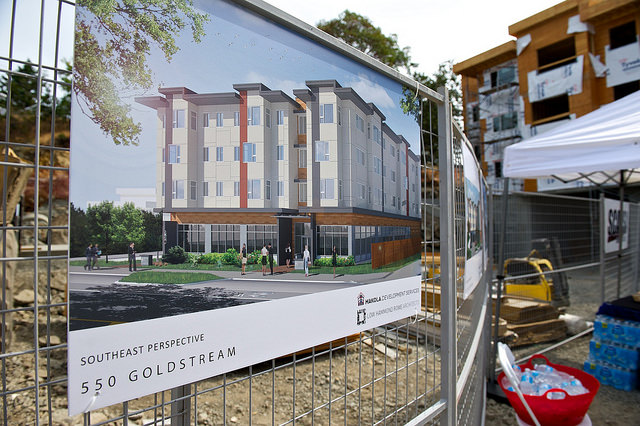
Image courtesy of BC Housing.
The recommendations presented to Council by the Mayor’s Task Force on Affordable Housing represent an important step towards ending homelessness in Greater Victoria. As an organisation our focus has been those experiencing chronic homelessness. Because so much public attention on this issue is focused on matters of mental health or substance use, there is a tendency to underestimate the impact of the broader issue of housing affordability and the connection to emergency shelter use.
People experiencing homelessness are not a distinct population. There is fluidity between those experiencing homelessness and those who are housed. One of the most significant contributors to homelessness is a critical shortage of housing that is affordable, safe and stable. This is particularly important for those living in core housing need (spending more than 30% of their income on housing). This means that for those with lower incomes, any kind of crisis can tip them temporarily into homelessness. The net result in Greater Victoria is that nearly 85% of those who frequent an emergency shelter do so only temporarily.
The affordability issue that drives this is significant. Currently the vacancy rates for units deemed ‘affordable’ according the Housing Income Limits set by BC Housing are between 0 and 1%. We have estimated that at any one time there are fewer than 60 vacant units that rent for $700 or less in Greater Victoria. There are hundreds of individuals seeking those units. Unfortunately the trend is worsening due to increasing rental rates across all unit types.
This shortage impacts on families. It impacts on students. It impacts on seniors. It impacts on individuals and it impacts on employers looking for workers. It also impacts on initiatives to address homelessness. Many successful “housing first” programs use rent supplements to house those experiencing chronic homelessness in the market sector. The lack of affordable housing greatly reduces access and creates a need for more expensive rental supplements.
That brings us back to the importance of the recommendations from the Mayor’s Housing Affordability Task Force. In identifying these actions they recognised there was no one magic solution. They realised that although the City doesn’t have the same capital resources as senior governments, it does have a wide variety of levers it can use to promote affordable housing. They range from permissive tax exemptions to streamlined approval processes. The key is that they considered these options as a whole. They have prepared a comprehensive, aggressive and innovative series of recommendations that the City of Victoria has now accepted.
This was a truly collaborative process. Just to name a few, it included private developers, landlords, housing providers, the Greater Victoria Coalition to End Homelessness, and those with lived experience of homelessness. The result is a suite of recommendations that are grounded in realistic, impactful and achievable action items with clear targets. The City of Victoria is to be commended for this approach and we encourage and support them to continue its pursuit of these recommendations.
– Andrew Wynn-Williams, Executive Director of the Coalition
Mayor’s Task Force on Affordable Housing Draft Recommendations
This first appeared as a comment in the Times Colonist on July 21, 2015.
